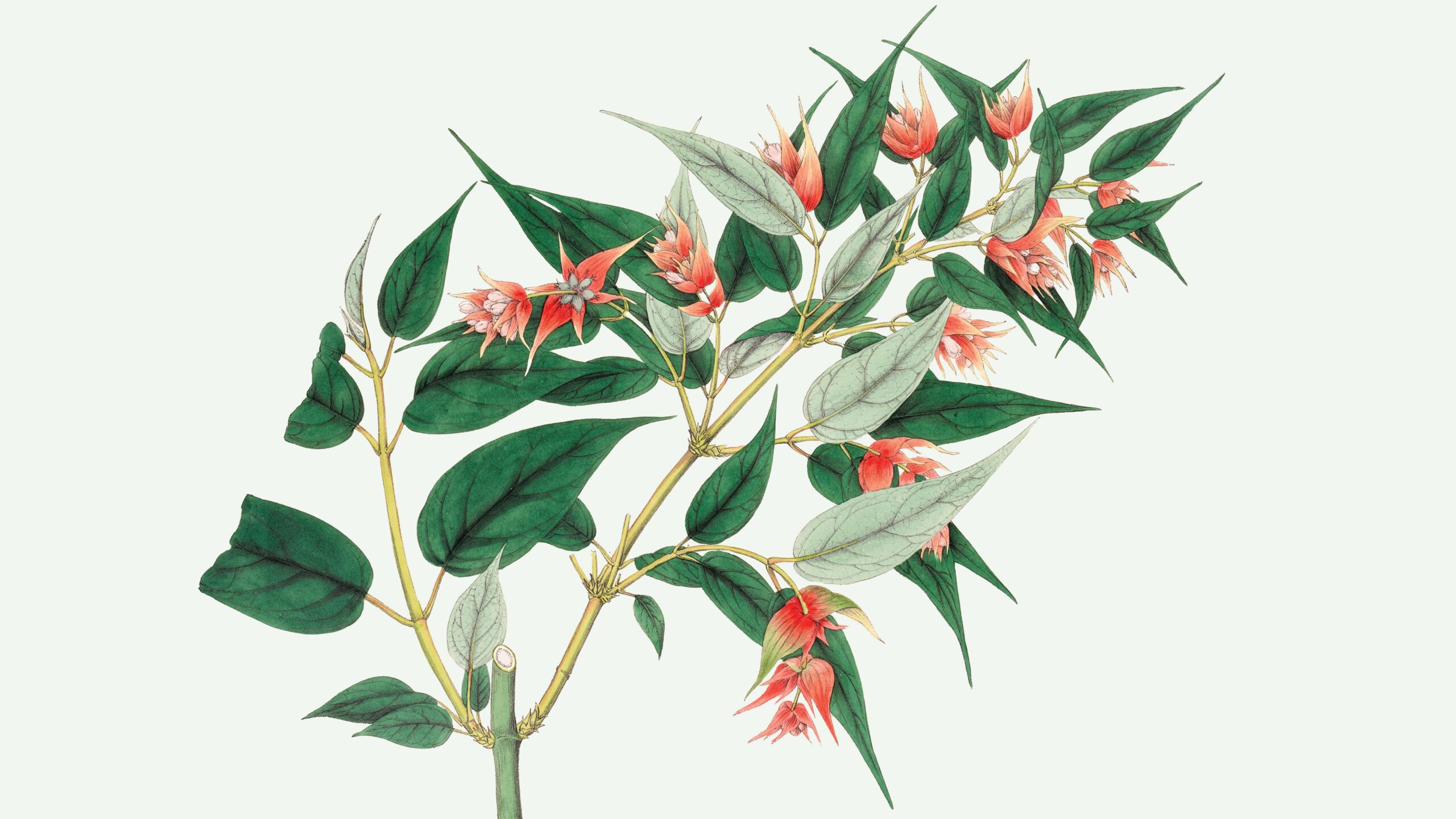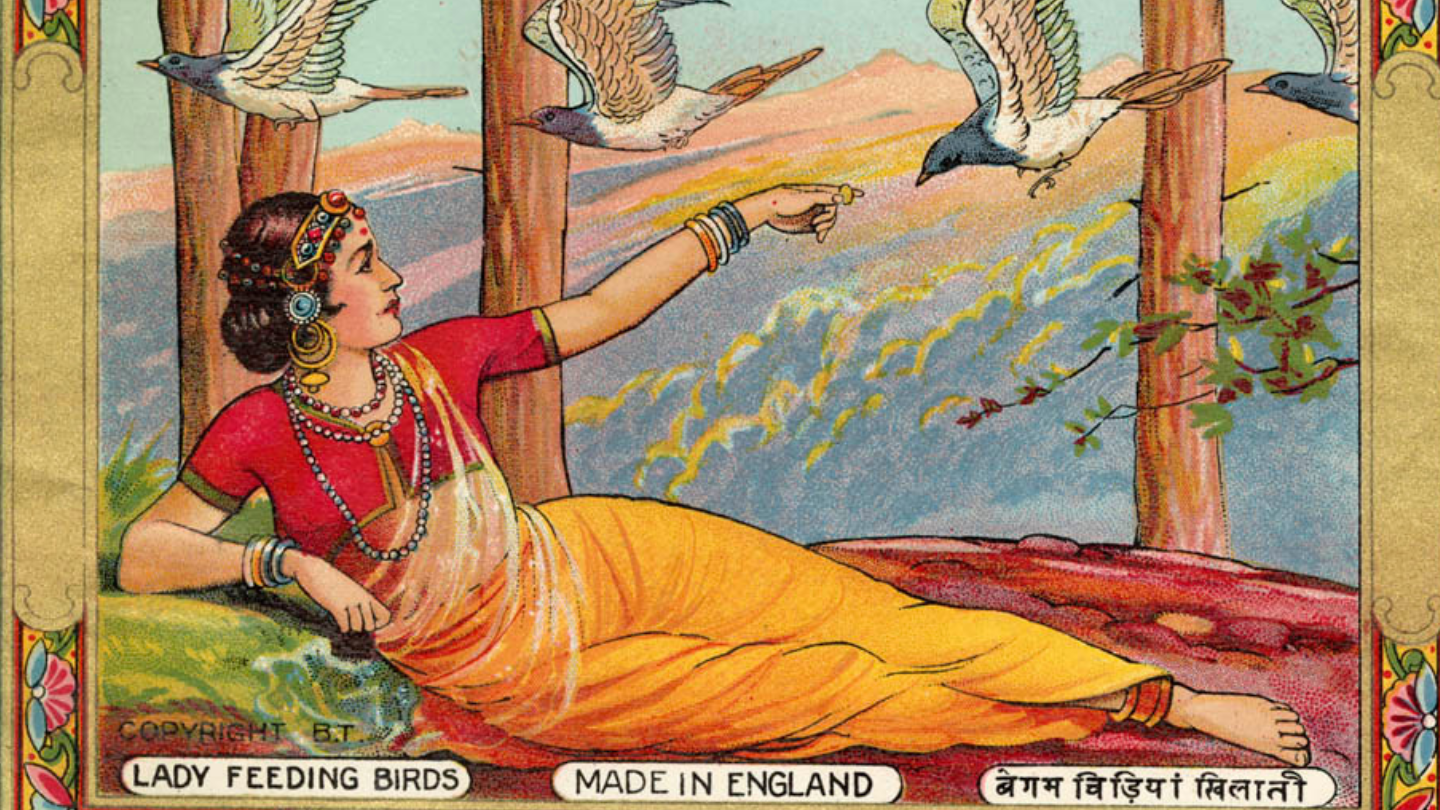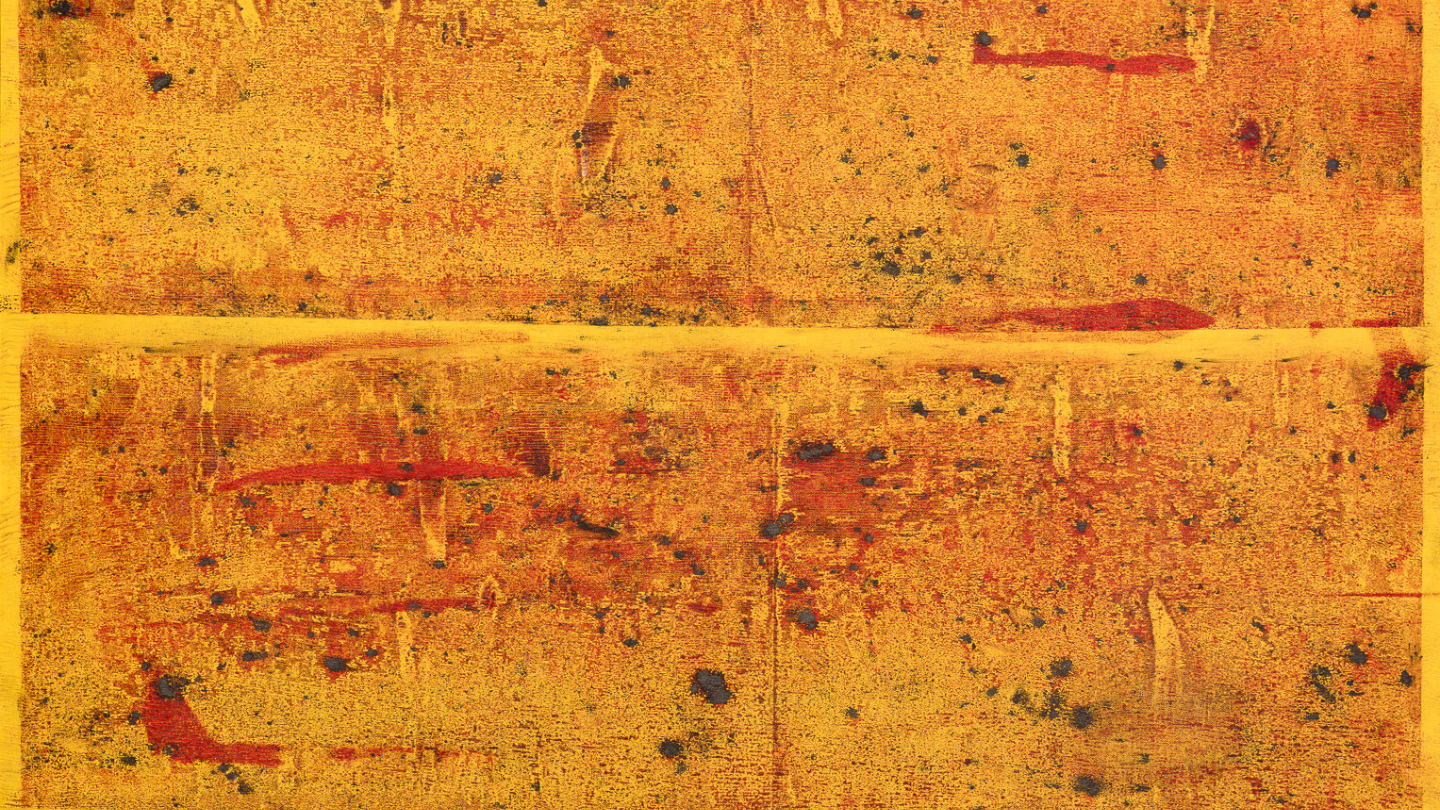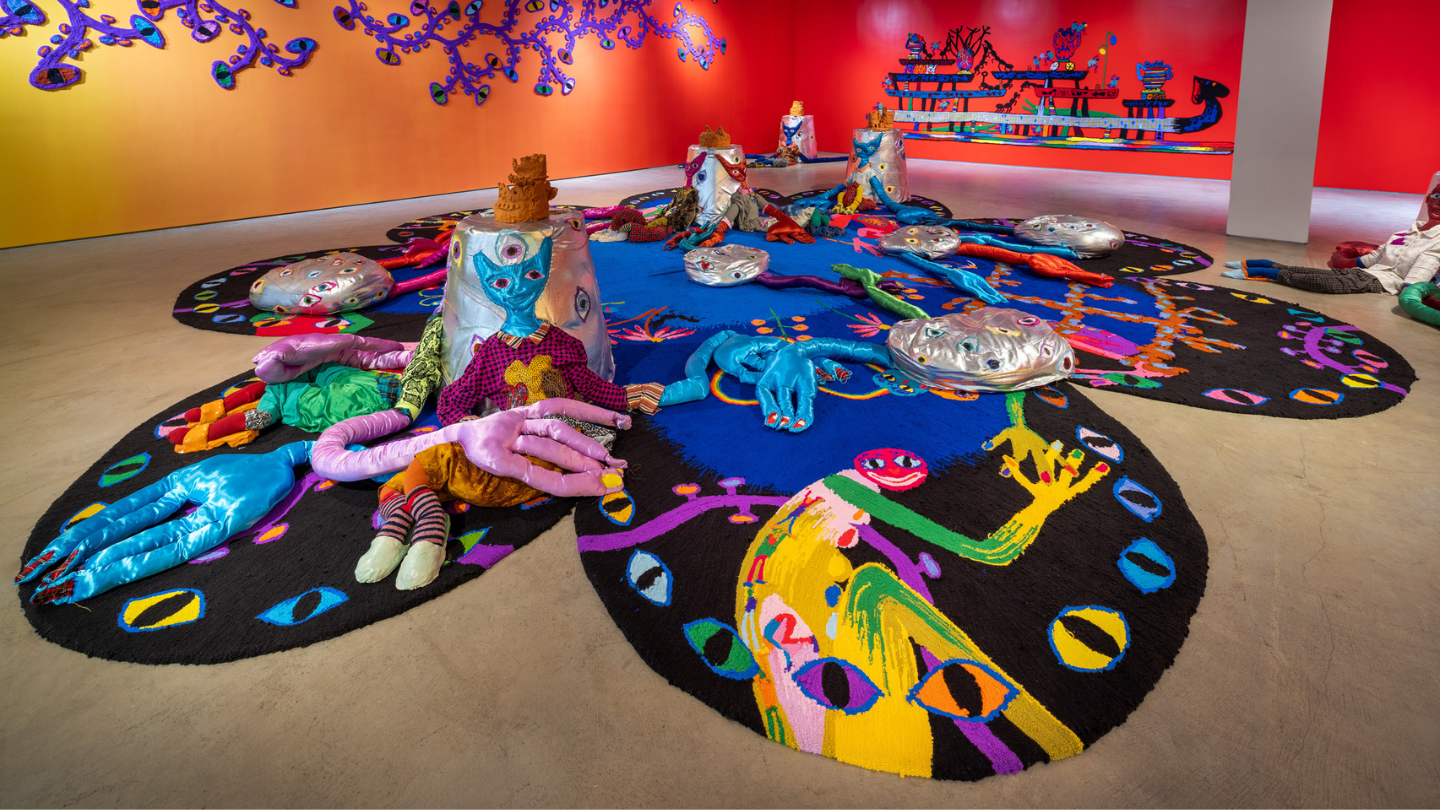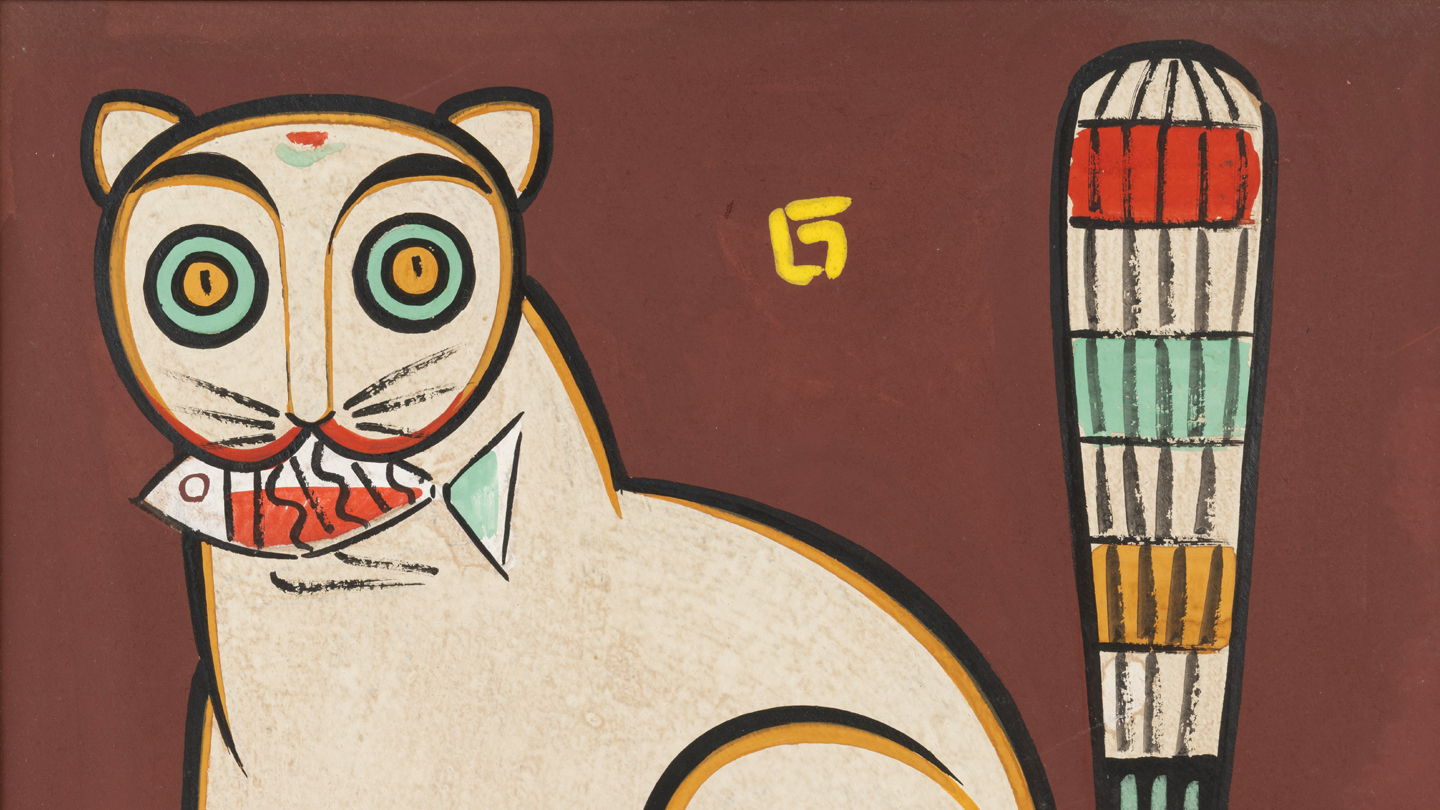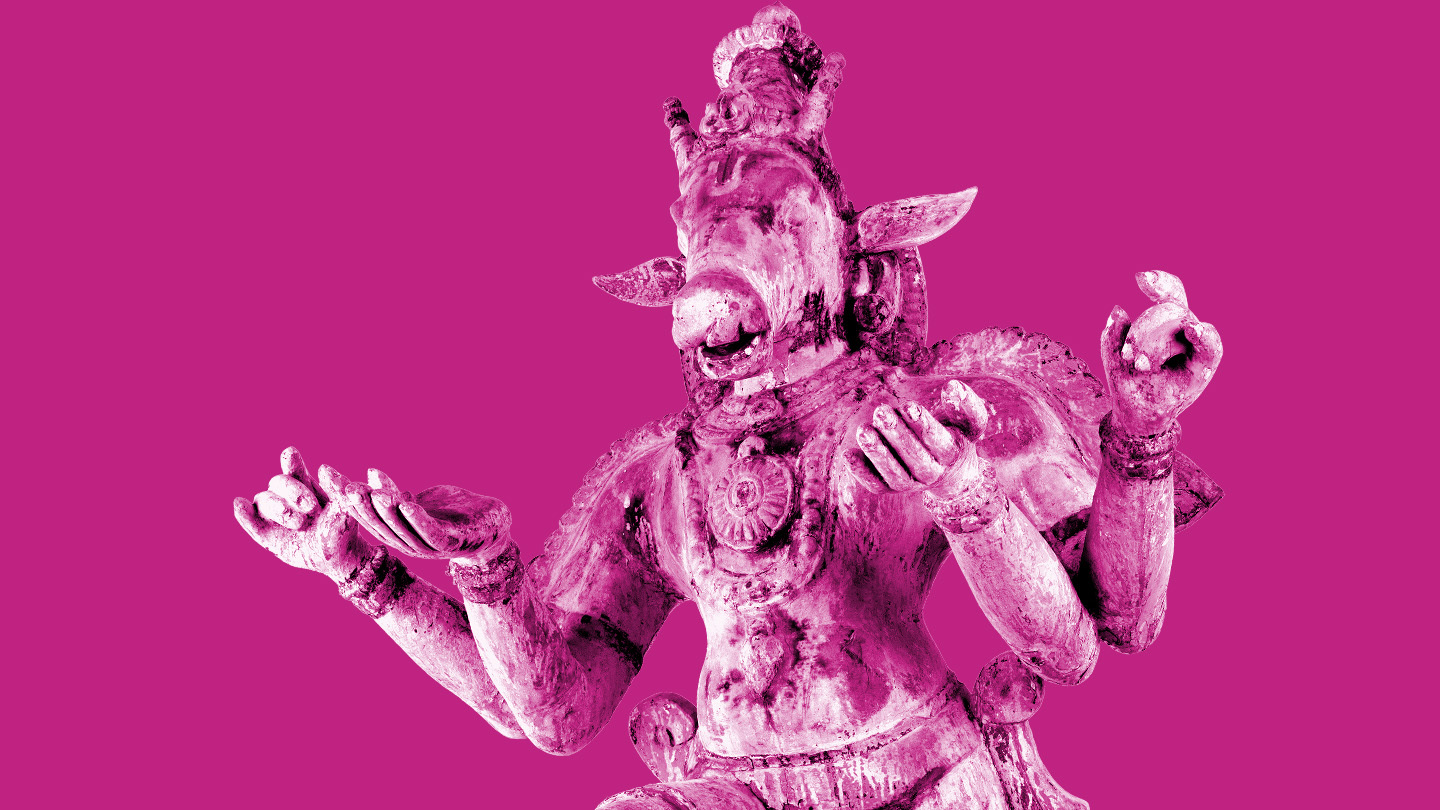Exhibitions
Stephen Cox: Dialogues in Stone
As a part of the inauguration, MAP will be showcasing the sculptures of Stephen Cox, a British sculptor who has spent a considerable amount of time working in India. His sculptures of Yoginis and Rishis carved in basalt greet audiences as they enter the museum. Drawing from Cox’s observations of architectural sites and monuments in the region, they embody mythical beings through minimalist forms.
The titles of these sculptures – yoginis and rishis – refer to powerful goddesses and sages. The yoginis were part of an esoteric cult, where only a small group of individuals held knowledge about these goddesses. Enshrined in open temples and shrouded in secrecy, yoginis possess magical powers that evoke both fear and awe. Cox’s sculptures are contemporary interpretations of these goddesses, blending animal and human forms, a hybridity referenced in ancient Indian texts and one the artist has encountered in Middle Eastern, Egyptian, Greek and Roman iconography.
The smoothness of stone in the yoginis is contrasted to the rough and textured form of the rishis. Associated with knowledge and truth, the rishis take the form of torsos and other irregular shapes. The minimal intervention to the stone reflects the austere nature of rishis. In doing so Cox breathes life into intractable stone, capturing the essence and spirit of primordial figures.
Cox works with local material, using stone extracted from quarries to the east of Kanchipuram, a city in Tamil Nadu. A team of stone carvers in Mahabalipuram give shape to these sculptures. These stones, known as basalt, were also used in the construction of ancient temples. His sculptures thus bring to light an ancient material into a contemporary setting; the incisions made to these stones are preserved, bearing the marks of time.
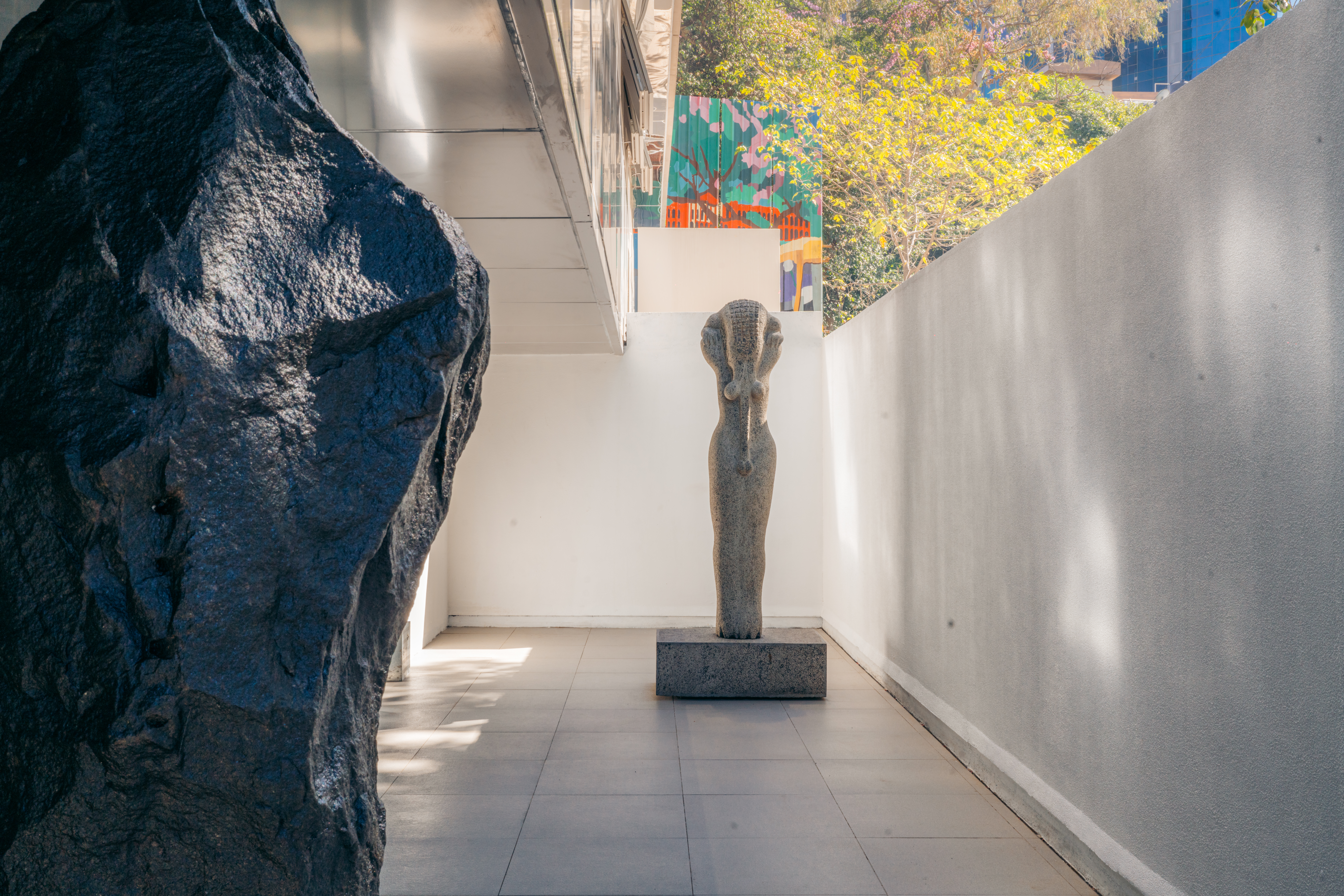
Installation view of Dialogues in Stone at MAP, Bengaluru
